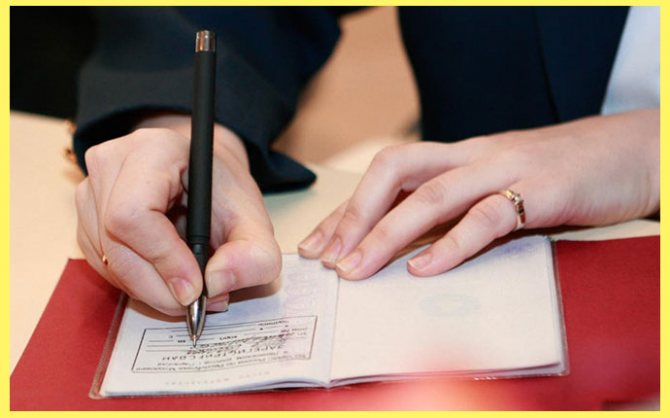The main points in the law on municipal housing
People living in a municipal apartment have their own rights and responsibilities. First of all, tenants must pay utilities. The responsibility for maintaining the living space is entrusted to them. They have every right to privatize an apartment, register in it and much more. However, they are limited in some rights.
The concepts of “tenant” and “tenant of residential premises under a social contract” are almost the same. However, from a legal point of view there are differences. Relations that arise under a social tenancy agreement are regulated by Chapter Eight of the Housing Code of the Russian Federation. It is she who explains the concept of “tenant” and equates it to tenants.
The undoubted advantage of living in an apartment under a social tenancy agreement is that the tenant at any time has the opportunity to register ownership of the occupied living space. Since the early nineties, a privatization program began to operate. On its basis, any state or municipal housing becomes the property of an individual or legal entity completely free of charge.
Privatization rules are regulated by Federal Law of the Russian Federation N 1541-1 of July 4, 1991 “On the privatization of the housing stock of the Russian Federation” and Federal Law of the Russian Federation N 178 of December 12, 2001 “On the privatization of state and municipal property”.
Attention! Our qualified lawyers will assist you free of charge and around the clock on any issues. Find out more here.
Rules for registration in municipal housing
In order to register a stranger in a municipal apartment, you will first need the consent of all persons living in this living space.
This provision is regulated by Article 70 of the RF Housing Code. Then you should notify in writing the municipal authorities that own the property.
The administration will make a positive decision only if there is no deterioration in living conditions. That is, if, according to the housing standards in force in the region for a given period, there will be enough square meters for each resident, including newly registered residents.
Otherwise, a refusal will be received.
To register a close relative (in addition to the spouse, this includes parents and children), the following aspect is important: is the spouse an employer, that is, the person for whom the social tenancy agreement is drawn up?
If so, the owner’s permission is not required, but the written consent of all residents, including those temporarily absent, is also required.
When someone is away and is not expected to return soon, you can ask for their consent in writing and then have the document certified by a notary. Without anyone's consent, it is only allowed to register a child under 14 years old in an apartment where at least one of the parents is registered.

If the employer is someone else (for example, the husband’s mother), then the wife will have to register on a general basis, with the written consent of the owner, tenant and other registered persons.

And if the municipality considers that with the moving in of a new tenant there will be a deterioration in living conditions (there will be fewer square meters per person), registration may be refused.
Also, if at least one of the adult residents registered in the apartment is against moving in and does not sign consent, the wife’s registration may not take place.
In this case, there is only one way out - going to court. But more on that below; first, let’s consider a successful case when the owner gave permission and the residents do not object. Where and with what documents should I apply?
Who is the employer
Nowadays, real estate owned by the state is leased to individuals, which is formalized in a social tenancy agreement. Previously, the basis for moving in was a warrant, but after changes were made to the Housing Code of the Russian Federation, an agreement was presented as it.
Those who received housing in the distant eighties still live in the apartment under a warrant. No one has the right to evict them. He is the only responsible person for paying utilities, as well as maintaining the premises. Based on this document, a person has the right to privatize real estate.
Now a person who owns residential government premises is called a tenant on the basis of a social tenancy agreement.
Important! The legislation of the Russian Federation defines a number of rules for persons applying for state real estate:
- having citizenship of the Russian Federation;
- the age of majority of the applicant for residential space;
- the legal capacity of the applicant, the ability to maintain housing in proper condition.
The rights of the tenant are described in Article 67 of the Housing Code of the Russian Federation. He is the subject of the contract. Any family member has the right to conclude a social rental agreement. The common area of the premises can be divided between relatives. However, such a procedure is practically not carried out, since it is not practical.
In the video about the division of personal accounts
- Due to frequent changes in legislation, information sometimes becomes outdated faster than we can update it on the website.
- All cases are very individual and depend on many factors. Basic information does not guarantee a solution to your specific problems.
That's why FREE expert consultants work for you around the clock!
- via the form (below), or via online chat
- Call the hotline:
- Moscow and the Region
- St. Petersburg and region
- Regions
APPLICATIONS AND CALLS ARE ACCEPTED 24/7 and 7 days a week.
Rights of the main tenant
The tenant of a state apartment is endowed with rights that will help him use the residential premises wisely and comfortably for its intended purpose.
These include:
- the tenant has the right to transfer the premises for use to other persons, including renting it out “for rent”;
- the tenant has the right to exchange the living space for another by mutual agreement with other tenants;
- require the owner to carry out major repairs free of charge;
- carry out repair work in the apartment, redesign the premises at any time convenient for the tenant;
- use utilities and pay for them from your own funds.
After the death of the direct tenant, members of his family have every right to live in the apartment, as well as to privatize it in the future. They are responsible for paying utility bills.
The tenant does not pay property tax, since in fact he does not own this residential space on a general basis.
What responsibilities does an employer have?
It should be noted that the employer has not only rights, but also responsibilities that he must fulfill. They are specified in the contract.
These include:
- use the apartment for its intended purpose, that is, for permanent residence;
- carry out activities to maintain the apartment in proper condition, for example, carrying out cosmetic repairs, disinfection, daily tidying, etc.;
- pay the rent stipulated by the social tenancy agreement;
- make utility payments directly to the supply company or through the homeowner.
Please note! If the terms of the contract are not met, for example, the tenant does not pay utilities for a long time, the administration has the right to terminate the contract unilaterally or by court decision.
Liability for non-payment
After dividing the personal account between residents, each of them is obliged to pay utility bills in accordance with a certain share. All citizens must pay rent on time. This requirement is established by the Civil Code of the Russian Federation. In case of violation, each person, after dividing the account, is independently responsible for any delays and pays the accrued penalties.
If any of the persons living in municipal premises does not fulfill their financial obligations and pays absolutely nothing towards the rent for three months, the management company has the right to apply to the judicial authorities to collect the debt. Based on the study of materials regarding the debtor, the court makes a decision.
If a citizen leads an antisocial lifestyle and does not have valid reasons for non-payment of amounts for utilities, he will most likely be sentenced to eviction from a municipal apartment.
Things are different with privatized property. Since the living space belongs to a specific owner, eviction is impossible. However, in such a situation, the court may seize the debtor’s real estate or bank accounts.
Rules for registering a minor child
According to the current legislation of the Russian Federation, the child is registered at the place of registration of the parents. If spouses live separately, the place of registration is the living space where the child spends most of his time. However, parents are not deprived of the opportunity to register their child in the living quarters of the father or mother.
Remember! When registering a child at the place of residence of the parents, there is no need to obtain consent from the owner of the property, as well as other family members. The child is considered registered in the premises in any case, even if the landlord is against it.
In what cases can a tenant be evicted?
A tenant will lose a state apartment in several cases:
- the tenant does not pay utility bills for a long time, usually more than six months in a row. He has no valid grounds for failure to fulfill his obligations under the contract;
- using the apartment for another purpose, for example, opening a store in it, conducting craft, manufacturing activities, etc.
If a violation of the clauses of the contract is detected, the employer is given a warning and a period during which he is obliged to correct the defects (pay utilities, stop production activities).
If the employer has not eliminated all the shortcomings within the required period of time, the owner has the right to terminate the social tenancy agreement unilaterally.
Remember! If you are evicted from your apartment due to the fact that the house is intended for demolition or is recognized as unsafe, you must be provided with other housing with a similar area that meets sanitary requirements.
As a rule, a common occurrence is the eviction of a tenant due to debts for utilities. To avoid this, you should make payments on time or use an installment plan to repay the debt from the service provider company.
What happens after the death of a tenant: who can live
In the event of the death of the tenant, the living space belonging to him under a social tenancy agreement becomes the property of the state. Relatives who are not registered in the apartment do not apply for it.
However, there are some concessions:
- relatives have the right to obtain permission to live in an apartment by court decision;
- relatives who previously lived with the tenant have the right to continue living in a state apartment;
- a disabled person and persons caring for him live in the apartment.
The above categories of persons have the right to draw up a social tenancy agreement and live in the premises on the grounds set out in the Housing Code of the Russian Federation.
People applying for renewal of a social tenancy agreement must be indicated as family members in the original agreement concluded with the deceased.
Legality of a husband living with his wife without registration
The husband can live in this living space until (and unless) the court decision to evict him comes into legal force. If the wife has a share in the ownership of the apartment, the court will take into account her opinion and the existence of a marital relationship when making a decision. So it is not a fact that the court will rule on his eviction. In this case, the role is played not by the family code, but by the housing code. and GK.
We recommend reading: Example of filling out 3 personal income tax for a tax deduction when buying an apartment









